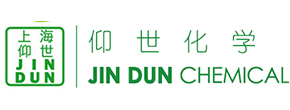International oil price uncertainty increases, fuel oil fundamentals are weak
2023/10/16
There is support on the cost side
In the third quarter, there was a gap of 1.45 million barrels per day in global crude oil supply, which led to a sustained increase in international oil prices. The October report released by OPEC estimates that global crude oil demand for the fourth quarter is 103.13 million barrels per day, global non OPEC crude oil production is expected to be 66.88 million barrels per day, OPEC unconventional oil and gas production is 5.43 million barrels per day, and OPEC needs to produce 30.82 million barrels of crude oil per day to achieve supply and demand balance in the global crude oil market. However, due to Saudi Arabia's 1 million barrels per day reduction in crude oil production, OPEC's current production is around 28 million barrels per day, and there is a certain gap in global crude oil supply. The overall shortage of crude oil still exists. However, several institutions have recently lowered crude oil demand. In the week of October 6th, EIA crude oil commercial inventory closed at 424.239 million barrels, an increase of 2.46% month on month. The above information indicates that the tight balance between global crude oil supply and demand has been alleviated. Affected by this, international oil prices have significantly declined, leading to a weakening of fuel oil prices.
However, the recent intensification of the Palestinian-Israeli conflict may provide strong support for oil prices. Palestine and Israel are not crude oil producing countries, but the Palestinian-Israeli conflict will delay the process of Iranian crude oil being reintroduced into the market and raise concerns about the situation in the Middle East. In this situation, international oil prices may experience a strong anti seasonal trend, which can support fuel oil prices.
Overall weakening of the supply and demand side
In terms of supply, domestic refineries still have profits, but profits are showing a downward trend, affecting overall production enthusiasm and low stocking enthusiasm. Therefore, there is an expectation of a decline in the operating load of the refinery in the later stage.
In terms of inventory, as of October 11th, Singapore's fuel oil depot had 24.39 million barrels in stock, a decrease of 1.62 million barrels from the same period last year and a year-on-year decrease of 6.23%. Among them, the storage capacity of light fuel oil depots was 13.85 million barrels, a decrease of 2.7 million barrels compared to the same period last year and a year-on-year decrease of 16.31%; The storage capacity of medium quality fuel oil depot is 10.54 million barrels, an increase of 1.08 million barrels compared to the same period last year, and a year-on-year increase of 11.42%.
In terms of demand, after August, the summer electricity peak in the Middle East region ended, and the demand for high sulfur fuel oil began to decline, while exports of high sulfur fuel oil in the Middle East correspondingly increased. As winter approaches, domestic heating demand begins to rise, and the demand for high sulfur fuel oil heating has increased.
In terms of ship fuel, although the fishing season is over and the demand for ship fuel for domestic fishing vessels will significantly recover, maritime trade will weaken seasonally as winter approaches. On October 13th, the comprehensive index of China's export container freight rates was 819.97 points, a decrease of 1206.29 points compared to the same period last year, and a year-on-year decrease of 59.53%; The Baltic Dry Bulk Index (BDI) was 1945 points, an increase of 127 points from the same period last year and a year-on-year increase of 6.99%. From data such as the export container freight index, it can be seen that the domestic demand for sea freight has decreased, and the demand for light fuel oil will also decrease. In addition, with the end of the "Golden Nine Silver Ten" consumption peak season, the demand for hydrogenation of fuel oil has also begun to decline, and the demand for fuel oil is relatively limited.
Overall, the demand for fuel oil power generation in the Middle East region has significantly decreased, with domestic shipping and hydrogenation entering the off-season of demand, and overall demand for fuel oil has weakened. At the same time, oil prices have significantly declined under the influence of weak consumption and rising inventory, coupled with weak fuel oil fundamentals, leading to some uncertainty in future short selling.
JIN DUN CHEMICAL has built a special (meth) acrylic monomer manufacturing base in ZHEJIANG province. This makes sure the stable supply of HEMA, HPMA, HEA, HPA, GMA with high level quality. Our special acrylate monomers are widely used for thermosetting acrylic resins, crosslinkable emulsion polymers, acrylate anaerobic adhesive, two-component acrylate adhesive, solvent acrylate adhesive, emulsion acrylate adhesive, paper finishing agent and painting acrylic resins in adhesive.We have also developed the new and special (meth) acrylic monomers and derivatives. Such as the fluorinated acrylate monomers, It can be widely used in coating leveling agent, paints, inks, photosensitive resins, optical materials, fiber treatment, modifier for plastic or rubber field. We are aiming to be the top supplier in the field of special acrylate monomers, to share our rich experience with better quality products and professional service.

